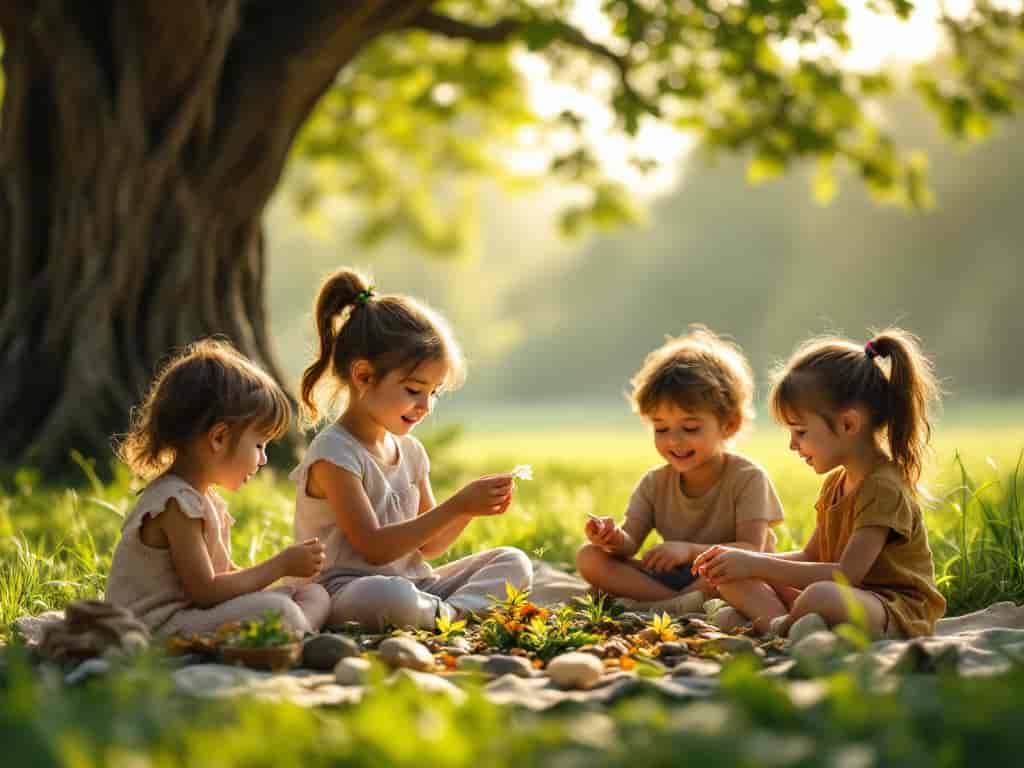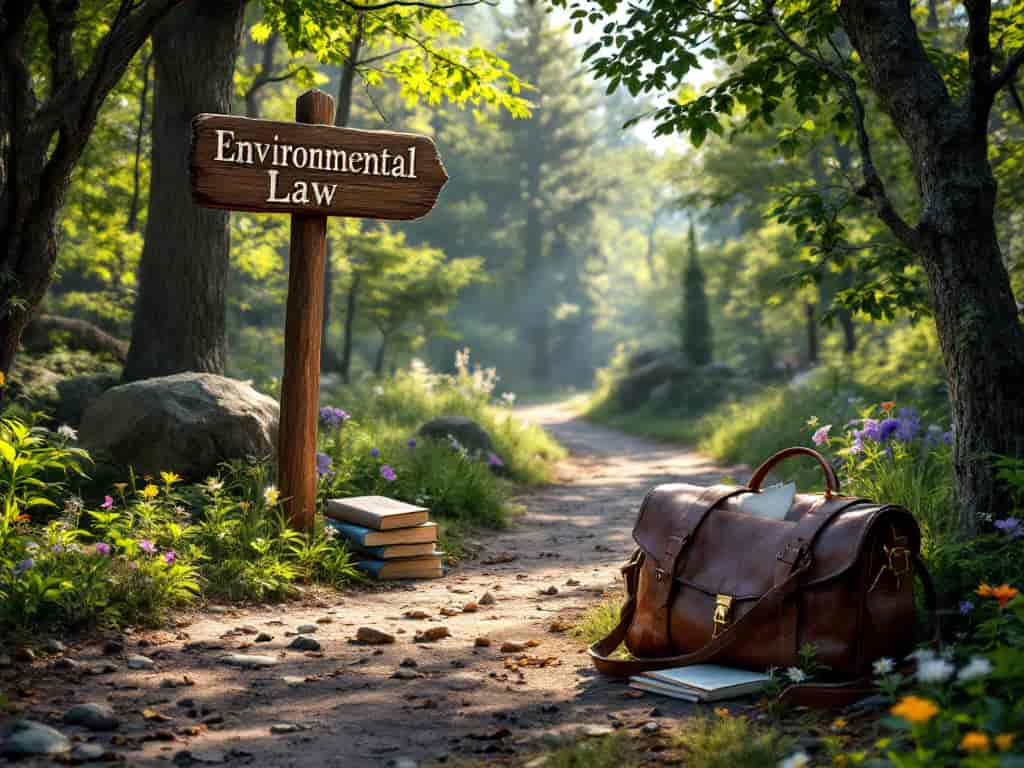Outdoor Learning: Boosting Cognitive Development
Ellie Moore

Photo: Outdoor Learning: Boosting Cognitive Development
Unleashing the Power of Outdoor Learning: Enhancing Cognitive Abilities
In today's fast-paced world, where technology often dominates our daily routines, it's easy to overlook the incredible benefits that nature can offer, especially when it comes to cognitive development. Outdoor learning is not just about getting some fresh air it's a powerful tool to stimulate minds, foster curiosity, and create meaningful connections. This article delves into the concept of outdoor education, exploring its positive impact on cognitive development and offering practical strategies for educators, parents, and caregivers to maximize this natural learning environment.
The Great Outdoors: A Natural Classroom
Outdoor learning environments provide a dynamic and multi-sensory experience that engages learners in ways traditional indoor settings may not. Here's how stepping outside can revolutionize the learning process:
1. Stimulating Sensory Experiences
- Nature's Sensory Buffet: The outdoors is a treasure trove of sensory stimuli. From the rustling of leaves in the wind to the scent of blooming flowers, every sense is awakened. This rich sensory environment stimulates neural connections and enhances cognitive development in children and adults alike. For instance, a study published in the Journal of Environmental Psychology found that children who spent more time in natural outdoor environments showed improved concentration and cognitive functioning.
- Tactile Learning: Outdoor spaces offer a hands-on learning experience. Whether it's feeling the rough bark of a tree or digging in the soil to plant seeds, these tactile experiences provide a unique way to understand the world, fostering a deeper connection to the learning material.
2. Encouraging Active Exploration
- Physical and Mental Engagement: Outdoor learning encourages physical activity, which has been linked to improved cognitive function. When learners are actively exploring their environment, they are more likely to retain information. A simple nature walk can become a lesson in biology, geography, and environmental science, all while promoting physical health.
- Inquiry-Based Learning: The outdoors presents a myriad of questions and mysteries to unravel. Why do birds migrate? How do plants adapt to different seasons? These natural curiosities spark inquiry-based learning, where students are encouraged to ask questions, investigate, and draw conclusions, fostering critical thinking and problem-solving skills.
Maximizing Cognitive Development Through Outdoor Education
To harness the full potential of outdoor learning, consider these strategies:
Engage in Nature-Based Activities
- Scavenger Hunts: Create themed scavenger hunts to encourage observation and critical thinking. For example, a nature-themed hunt can involve finding different types of leaves, identifying bird calls, or spotting various cloud formations.
- Outdoor Art Projects: Take art lessons outside. Students can create natural collages using leaves, sticks, and flowers, or sketch the surrounding landscape, improving their observation skills and creativity.
- Outdoor Science Experiments: Conduct simple experiments outdoors, such as testing the pH levels of different water sources or studying the effects of sunlight on plant growth. This brings scientific concepts to life and allows for hands-on learning.
Create an Outdoor Learning Curriculum
- Themed Lessons: Design lessons around seasonal changes, local wildlife, or environmental issues. For instance, a lesson on biodiversity can involve identifying and documenting the species in a local park, fostering an understanding of ecological concepts.
- Outdoor Reading and Writing: Set up an outdoor reading corner with nature-themed books. Encourage students to write nature journals, describing their observations and experiences. This combines literacy with the benefits of outdoor immersion.
- Nature-Based Problem-Solving: Present real-world problems related to the environment and challenge students to find solutions. For example, how can we reduce the impact of littering on local wildlife? This approach promotes critical thinking and a sense of environmental responsibility.
Foster a Connection to Nature
- Environmental Stewardship: Teach students about the importance of conservation and sustainability. Engage them in activities like community clean-up drives or planting trees to instill a sense of responsibility for the natural world.
- Mindful Nature Walks: Encourage students to take mindful walks, focusing on their surroundings and the present moment. This practice enhances awareness and appreciation for nature, leading to a deeper connection with the environment.
- Outdoor Team-Building Activities: Organize activities that promote collaboration and teamwork in an outdoor setting. This not only strengthens social skills but also fosters a sense of community and shared responsibility for the natural environment.
Real-World Success Stories
Case Study 1: The Outdoor Classroom Project
In a rural school district, educators implemented an outdoor learning program, transforming their school grounds into an interactive learning environment. Students spent a significant portion of their day outside, engaging in activities like gardening, nature-based art, and outdoor science experiments. The results were remarkable: improved academic performance, increased focus, and a heightened sense of environmental stewardship among students.
Case Study 2: Nature-Based Preschool
A nature-based preschool model has gained popularity, with children spending the majority of their day outdoors. This approach has shown significant benefits, including enhanced social skills, improved problem-solving abilities, and a deeper understanding of the natural world. The program's success has led to its adoption in various early childhood education settings.
Overcoming Challenges and Embracing the Outdoors
While outdoor learning offers immense benefits, there can be challenges, such as weather conditions or initial resistance from students. Here's how to navigate these obstacles:
- Prepare for All Weather: Invest in appropriate clothing and gear to ensure comfort in various weather conditions. Teach students about dressing in layers and provide shelter options for extreme weather.
- Start Small and Build Excitement: Begin with short outdoor sessions and gradually increase the duration. Create anticipation by discussing upcoming outdoor activities and their benefits, making it an adventure.
- Address Safety Concerns: Establish clear rules and boundaries for outdoor spaces. Conduct regular safety checks and ensure adult supervision at all times. Addressing these concerns proactively will help create a secure and enjoyable learning environment.
FAQ: Answering Your Outdoor Learning Queries
Q: How can outdoor learning benefit students with different learning styles?
A: Outdoor education caters to various learning styles. Visual learners can benefit from observing natural phenomena, while kinesthetic learners thrive with hands-on activities. Auditory learners can engage in outdoor discussions and nature-inspired storytelling.
Q: What are some ways to incorporate technology into outdoor learning?
A: Technology can enhance outdoor experiences. Use tablets or smartphones for nature photography, digital scavenger hunts, or recording observations. GPS devices can be employed for geocaching activities, combining technology with outdoor exploration.
Q: How can outdoor learning be adapted for different age groups?
A: Outdoor lessons can be tailored to suit different age-appropriate activities. Younger children might focus on sensory exploration and nature play, while older students can engage in more complex projects and investigations.
Q: What are the long-term benefits of outdoor education?
A: Long-term exposure to outdoor learning can lead to improved academic performance, enhanced problem-solving abilities, and a deeper connection to the natural world. It fosters a sense of environmental stewardship and encourages a healthy, active lifestyle.
Conclusion: Nurturing Minds in the Great Outdoors
Outdoor learning is a powerful tool to enhance cognitive development and create a lifelong love for nature. By integrating the outdoors into educational practices, educators and parents can provide a rich, stimulating learning environment. The benefits are vast, from improved concentration and sensory development to fostering a sense of curiosity and environmental awareness.
As we embrace the natural world as our classroom, we unlock a world of discovery and growth. Encourage your readers to share their outdoor learning experiences and ideas in the comments below. Let's inspire each other to step outside and unlock the full potential of our cognitive abilities! Remember, the great outdoors is a treasure trove of learning opportunities waiting to be explored.
Finance & Investment
View All
May 10, 2025
Auto Finance Rates ComparisonBeyond keywords: Master expert SEO content to build trust, rank high, and serve your audience. Align with Google's E-E-A-T for true online authority.
Ellie Moore

April 22, 2025
American Honda Finance Corporation LoginElevate your brand with expert SEO content. Achieve higher rankings, build trust, and attract more organic traffic by delivering exceptional value.
Ellie Moore

February 10, 2025
Why Industry Benchmarking Matters for GrowthDiscover why industry benchmarking is crucial for business growth. Learn how to measure success against top competitors.
Ellie Moore

October 8, 2025
Capital Premium Finance OverviewStand out online with expert SEO content. Discover how valuable, trustworthy content, guided by E-E-A-T, unlocks your digital potential.
Ellie Moore

June 30, 2025
Capital One Auto Finance Login GuideUnlock organic growth with expert SEO content. Learn how E-E-A-T, quality, and depth drive visibility and establish your brand as a trusted authority.
Ellie Moore

June 3, 2025
Auto Loan Financing SimplifiedUnlock lasting online success with expert SEO content. Go beyond keywords to create high-quality, user-centric content that builds trust, boosts rankings, and d...
Ellie Moore
Insurance
View AllExplore how InsurTech startups are transforming the insurance industry with innovation and cutting-edge solutions.
Ellie Moore
Don't gamble with your finances. Discover essential auto insurance coverage to protect your assets, minimize risk, and gain peace of mind on the road.
Ellie Moore
Safeguard your automotive investment. Gap insurance covers the financial gap if your totaled car's value is less than your outstanding loan.
Ellie Moore
Navigate risks & secure your future with The General Insurance Solutions. Essential for agents, policyholders & risk managers to optimize coverage & gain peace...
Ellie Moore
Safeguard your assets with our guide to Complete Safeco Insurance Coverage. Understand options, compare quotes, and get peace of mind.
Ellie Moore
Moving abroad? Learn everything about international health insurance, from coverage options to must-have benefits for expats.
Ellie Moore
Education
View AllArts education is key to fostering creativity. Learn why it’s important in schools and how it helps students develop essential life skills.
Read MoreLearn key strategies for creating inclusive classrooms. Discover how to foster equality, engagement, and a sense of belonging for every student.
Read MoreDigital citizenship teaches responsible tech use. Learn how to help students navigate the digital world safely and ethically.
Read MoreProject-based learning engages students by tackling real-world problems. Learn how this approach fosters critical thinking and creativity.
Read MoreExplore how emotional intelligence impacts academic performance. Learn strategies to help students develop emotional skills for better learning outcomes.
Read MoreMultilingual education promotes diversity and cultural understanding. Learn why it matters and how it benefits students in a globalized world.
Read MorePopular Post 🔥
View All
1
2
3
4
5
6
7
8
9
10
Health






Automotive
View All
February 15, 2025
Car Auction Guide: Tips for First-Time Bidders
New to car auctions? This guide covers essential tips for first-time bidders, from setting a budget to spotting a great deal. Ready to bid smart?

August 16, 2025
Automotive Holdings Group Limited Overview
Uncover the impact of Automotive Holdings Group (AHG) on Australia's car market, its rise, and its pivotal acquisition by AP Eagers.

August 30, 2025
SZN Automotive LLC Car Care For All Seasons
Drive confidently all year! SZN Automotive LLC provides comprehensive seasonal car care to prevent issues, enhance safety, & save you money.

September 1, 2025
Understanding An Automotive AC Diagram
Unlock your car's AC secrets! Learn to read automotive AC diagrams, diagnose issues, and troubleshoot problems. Stay cool and confident on the road.

July 29, 2025
All Automotive Essentials For Your Car Maintenance
Master car maintenance with our ultimate guide! Learn essential DIY tips, tools & fluids to boost safety, extend lifespan & save money.

August 8, 2025
How To Connect Wires In An Automotive Plug Easily
DIY automotive wiring guide: Learn to connect car wires safely & reliably. Fix electrical issues and install accessories with confidence.

















